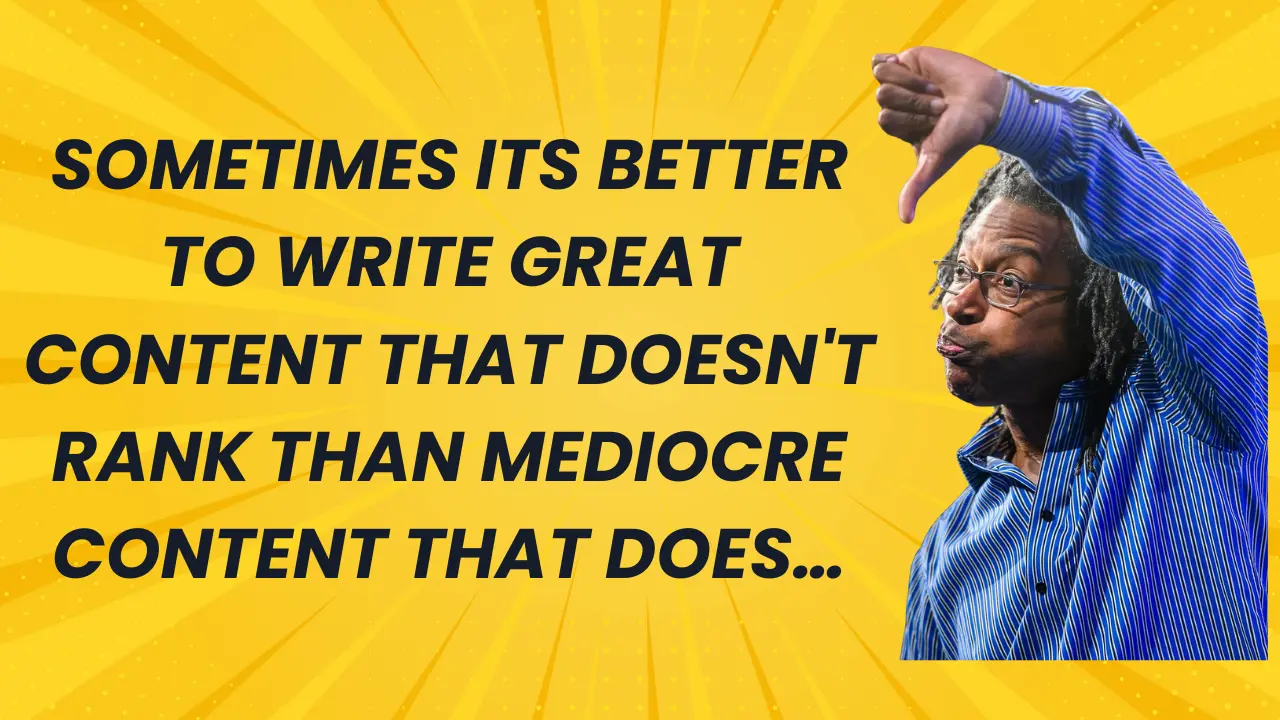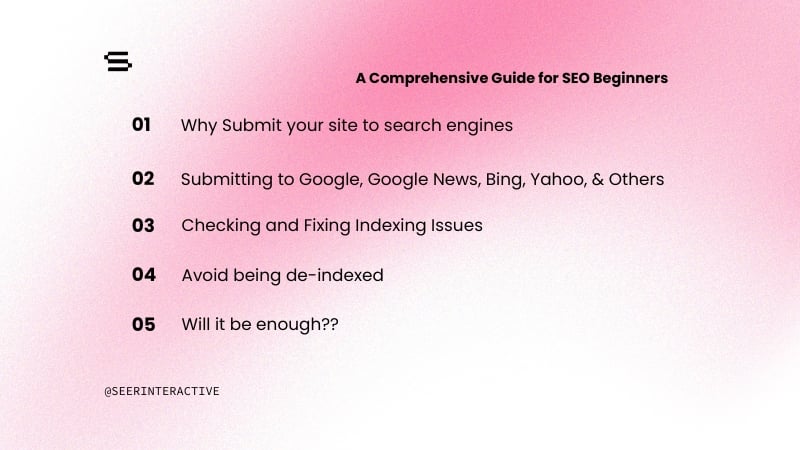Circa June 2013, Google revamped the way local businesses appeared on the SERPs. Across the nation, bedlam ensued as local business owners ran around, pulling their hair out cursing the Google gods and their gaudy, horizontally scrolling, row of images atop the results page. Many of us questioned its purpose. How did it work? How would local businesses get listed in the carousel? What would it mean for my local business? Why Google why?!
Take a deep breath and continue reading, as my colleague Ivy and I dissect the Google carousel - today, I’ll start us off with part 1.
What is the Google Carousel?
The Google carousel is meant to display the best local results for your search query. So how does Google determine what the "best" result is to show in the carousel? Google will reward proximity (how close the searcher is to your business), local citation, reviews (yelp,G+), and high-quality photos.
Where Do the Photos Come From?
The photos in the carousel are taken directly from the listing’s G+ page. Notice that Golden Chopstick’s photo is a picture of their listing in Google maps - this is because Google will only post high-quality photos. Although Golden Chopstick’s Google+ page has a photo of their takeout joint, it is very low-quality. Google can recognize “hey, this photo isn’t that great, we would rather post their Google maps snapshot instead of the low-quality photo they have on their page.” The Carousel will only pull pictures from Google’s servers. This means the nice picture on your website won’t ever show up on the carousel, but instead it will post the picture that lives somewhere in Google’s servers, whether it be from G+ or a Google maps listing.

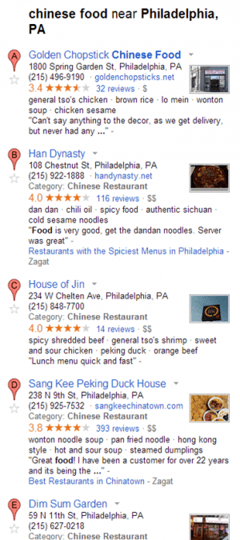
Rankings and Citations
If you look at the ratings for Golden Chopstick and Han Dynasty, Han Dynasty is rated 4.0 compared to Golden Chopstick’s 3.4. Although Han Dynasty is rated a lot higher, Golden Chopstick is a lot closer to me in Philadelphia than Han Dynasty is. The carousel rankings are also identical to the listings in Google Maps, thus emphasizing my point: it’s all about location, location, location.
Another factor to look at are your citations. Citations for local businesses are more important than ever. The carousel will take your Google reviews and factor them into the carousel rankings. Information from citation sources like YELP and Zagat won't be a factor in your carousel rankings but is important to factor into your social strategy. Higher ratings = higher click-through rate. Take a look at the SERP for “hotels philadelphia” below. It doesn’t take much looking around to realize that Google wants you to click on Google results. What do I mean by this, you ask?
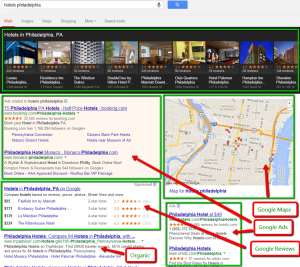
The first third of the results page is cluttered with Google ads, reviews, and maps. As a result, organic results are being pushed down as Google takes up more real estate. What does this mean to you? Get active on Google+. Google will pull your reviews, location, and images from your Google+ page and translate it directly to the SERPs. This is not news to anyone, but it stresses the importance of your G+ page.
What happens when you click on the carousel?
So you may be saying alright, fair enough, I’ll find the keywords that are triggering the carousel for my business and optimize for those keywords. Your logic, in theory, sounds like a great plan, but it’s not going to be that easy. Let me explain…
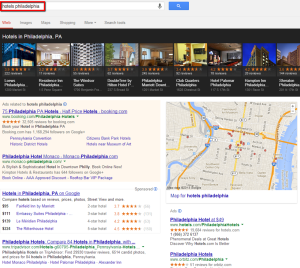
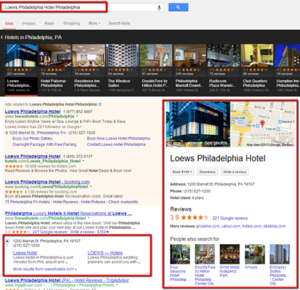
Once I click on Loews Hotel, I get redirected to a new results page with “Loews Philadelphia Hotel Philadelphia, PA” as my search query.
Once again, Google takes up major real estate in the SERPs, with a snapshot of their G+ page in the right sidebar and rich snippets of Google reviews. Are you beginning to see a pattern here?
Here’s the kicker.
If the carousel shows up for your business, you will lose a lot of non-branded keyword data while you're branded keyword data skyrockets. Why?
Because a click on the local carousel does not take you directly to the listing’s website, but instead replaces the query with the “Listing Name” + “Location.” GA data will not record “hotels philadelphia” but “Loews Philadelphia Hotel Philadelphia, PA.”
If you land on the listing's website through the carousel, the branded search query will only be recorded in GA's data, giving you even less non-branded keyword data! There are quite a few things that you can take away from this, as listed below. Ivy will continue with Part 2 of this post on Monday, so keep your eyes peeled.
Key Takeaways:
- Get your business active on Google+
- Upload high-quality photos to your G+ page
- Know and own your citations and social sites such as Yelp, Zagat, etc.
- Don’t get caught up on your non-branded keyword data. With “not provided” and now the local carousel, there is even less keyword data to analyze.

